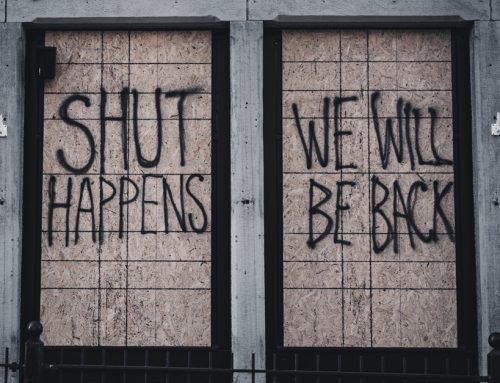Every May, we are given the opportunity to raise community awareness and to support the message that domestic and family violence is unacceptable in our community.
At BTLawyers, we are passionate about assisting our clients who are impacted by or experiencing domestic violence.
If you are experiencing domestic violence, or if you are unsure if you are, the following information should assist you to work out the next steps for you.
What is Domestic Violence?
Domestic violence can occur in any family, irrespective of age, sex, cultural background, socioeconomic factors or religion.
The definition of ‘domestic violence’ is much broader than just physical violence. Sometimes our clients are unsure of whether their situation can be charaterised as domestic violence.
Whilst not an exhaustive list, the definition of domestic violence has widened over time to include conduct from one person to another that is:
- Physically or sexually abusive;
- Emotionally or psychologically abusive;
- Economically abusive;
- Threatening;
- Coercive; and
- Controlling or dominating in nature, and which causes a person to fear for their safety, or that of someone else.
There are many examples of what such conduct might look like, including:
- Causing, or threatening to cause, injury to a person;
- Causing or threatening to cause damage to a person’s property;
- Depriving, or threatening to deprive a person of their liberty;
- Coercing or attempting to coerce a person to engage in sexual activity;
- Threatening death or injury to a person or their child;
- Threatening to commit suicide or self-harm;
- Causing or threatening to cause death or injury to an animal;
- Unauthorised surveillance of a person; and
- Unlawfully stalking a person.
What is the Process and How Can a Lawyer Help?
Police may become involved in domestic violence incidents. Where there is reasonable proof that domestic violence has occurred, the police may issue a Protection Notice to the abuser. The Notice will include the standard condition that the abuser must be of good behaviour and must refrain from committing any further acts of domestic violence. There may also be additional conditions, further restricting their conduct.
If the police issue a Protection Notice, you will not need to apply to the Magistrates Court for your own Domestic Violence Order (DVO) as the police will take control of the Application and Court process.
Whether the police decide to make an Application on your behalf is a discretionary decision. Victims of domestic violence will often be encouraged to file a private Application themselves, even in circumstances where serious domestic violence has occurred.
If you are at risk and you have already contacted the police, your next step should be to obtain legal advice from a lawyer who specialises in domestic violence matters. A lawyer can assist you to file an Application for a Domestic Violence Protection Order with the Magistrates Court.
If you make an Application, you will be referred to as the “Aggrieved” and your abuser is named as the “Respondent”.
To issue a DVO, a Judge must be satisfied with the following:
- The Aggrieved and the Respondent have a relationship that is relevant to the Application
- The Respondent has subjected the Aggrieved to domestic violence
- The DVO is necessary in order to protect the Aggrieved from further acts of violence and abuse.
Your lawyer will assist you to complete your Application with information relevant to satisfy the above criteria. They will also provide advice on what conditions you should seek in your Application and represent you in Court if necessary.
Once a DVO (temporary or final) is made, it will set out the conditions that the abuser must abide by, including how they behave towards you and anyone else named on the order (i.e your children).
Whilst every DVO is different and the conditions of each Order will be determined by the circumstances of each case, all DVOs will include a standard set of conditions, that the Respondent must be of good behaviour and not commit domestic violence towards the Aggrieved.
Two of the most common additional conditions include restricting physical contact and / or a condition called an “ouster” order, requiring the Respondent to leave the home.
What Happens at Court?
Once you have applied for a DVO, you will be given a Court date (referred to as a “Mention”). The police will then provide the Respondent with a copy of your Application.
If both you and the Respondent attend Court on the first Mention date and agree to the conditions set out in the Application, the Court will issue the DVO on a final basis. This would require the Respondent to “consent without admissions” to the proposed DVO.
If the Respondent does not agree to the proposed DVO or fails to attend the Mention, the Court may grant a Temporary Protection Order and adjourn the matter for a further Mention.
If the Respondent still disputes the Application, then you will be given a final Hearing date and a set of directions from the Court setting out what steps you are required to take prior to the Hearing. The final Hearing is an opportunity for both you and the Respondent to present your evidence to support your case.
What if there are children involved?
When applying for a DVO, children can be included on the Order if the child also requires protection from domestic violence.
Importantly, a child might require protection if the child hears or otherwise experiences the effect of domestic violence. This might include any of the following scenarios where a child:
- overhears threats of abuse;
- sees or hears an assault;
- experiences the impacts of financial stress arising from economic abuse;
- is required to comfort or assist a victim of physical abuse;
- observes bruising or injuries arising from physical abuse;
- is required to clean up damaged property caused by domestic violence; and
- is present at a domestic violence incident attended by Police.
If you are experiencing domestic violence, we can assist you through the process.
Until the end of June, we are offering a 30-minute free consultation to all clients who are experiencing or impacted by domestic violence. Just mention this article when booking your appointment. To book your appointment, you can contact us on 07 3211 2233.
If you’d like further information on when a DVO is breached, click here.
If you are in danger, please contact the police immediately before contacting our office.






